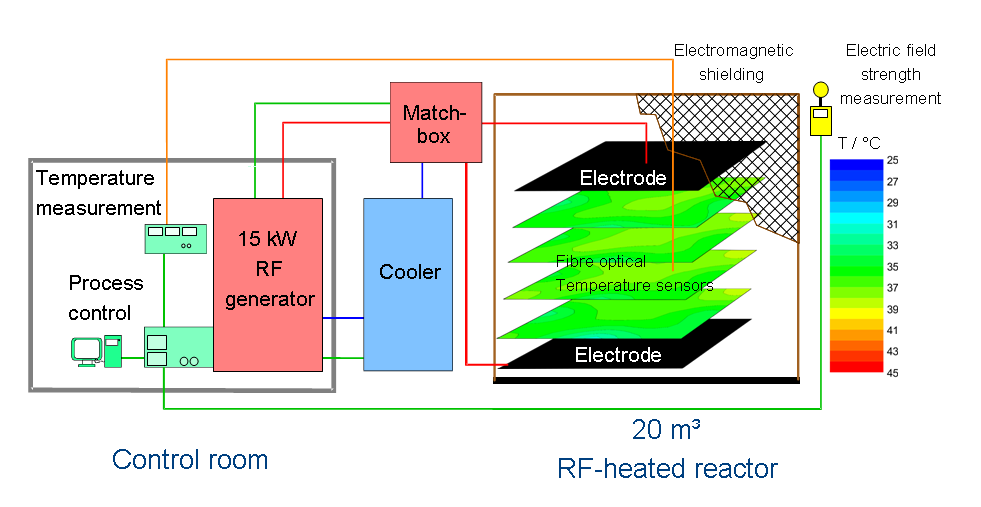Thermal enhanced microbial remediation of harmful substances

A special application of the radio-wave technology for soil remediation is related to soil heating in order to support microbial degradation of pollutants. Optimum soil temperatures for microbial degradation processes by mesophilic autochthonous microorganisms in the range of 35°C are hardly ever reached without taking external heating measures. Therefore, natural biological degradation processes are often very slow, namely during winter times in Germany or under permafrost conditions in Scandinavia.
Within the framework of a collaborative project with a remediation company, we investigated successfully heating and temperature control of soil heaps employing our radio-wave technology on the pilot scale. For example, 20 m3 of heavily contaminated soil were homogenously heated to 37 °C with the help of radio waves. While temperatures were held constant for several weeks, it could be shown that microbial degradation of the pollutants was significantly enhanced. Furthermore, it was also shown that thermophilic microorganisms could be activated by a controlled increase of temperature.
Contact
Selected publcations
U. Roland, D. Buchenhorst, F. Holzer, et al., Engineering aspects of radio-wave heating for soil remediation and compatibility with biodegradation, ENVIRONMENTAL SCIENCE & TECHNOLOGY, 42 (2008), 1232-1237
